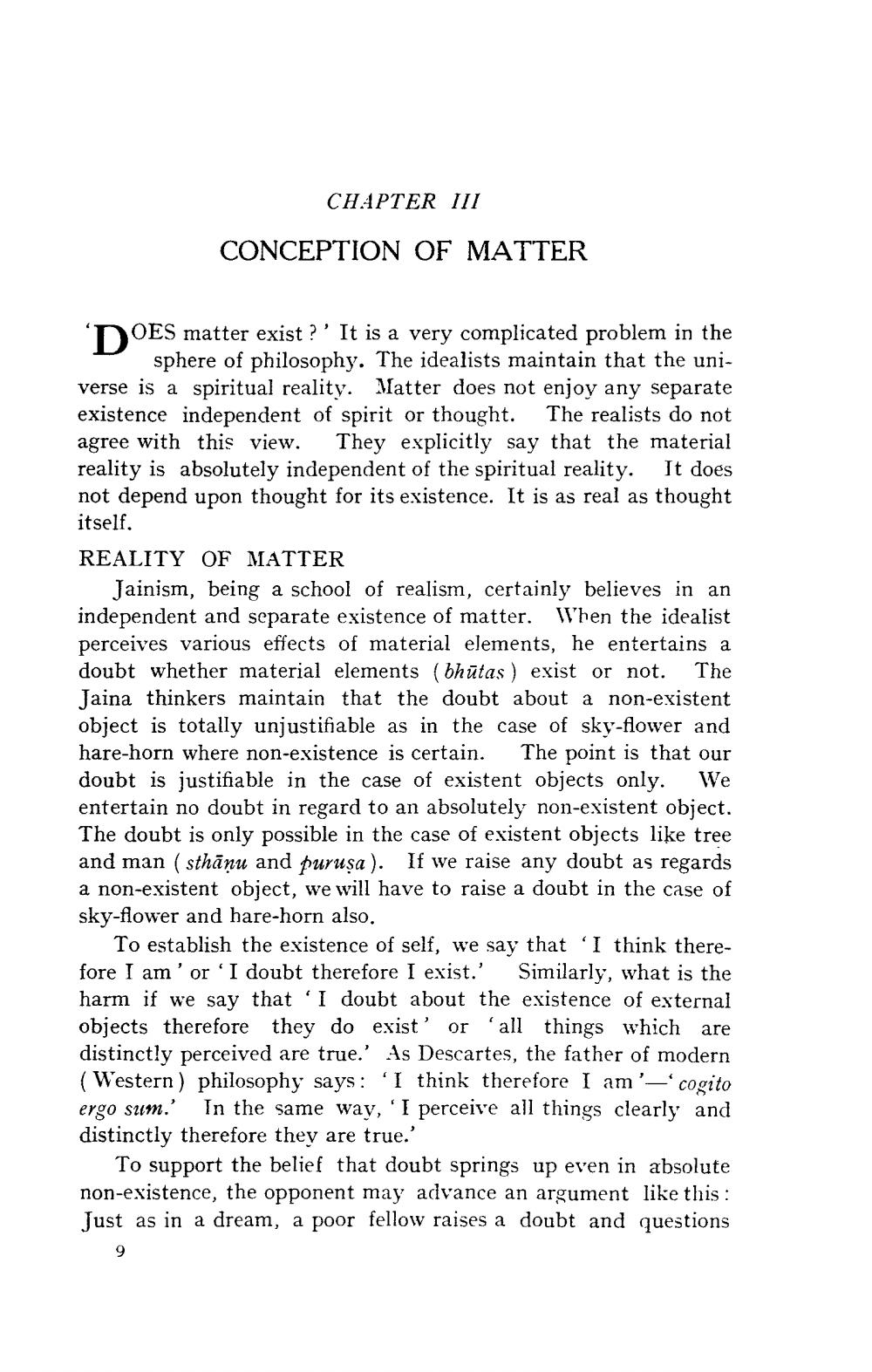________________
CHAPTER III CONCEPTION OF MATTER
'D OES matter exist ?' It is a very complicated problem in the
sphere of philosophy. The idealists maintain that the universe is a spiritual reality. Matter does not enjoy any separate existence independent of spirit or thought. The realists do not agree with this view. They explicitly say that the material reality is absolutely independent of the spiritual reality. It does not depend upon thought for its existence. It is as real as thought itself. REALITY OF MATTER
Jainism, being a school of realism, certainly believes in an independent and separate existence of matter. When the idealist perceives various effects of material elements, he entertains a doubt whether material elements (bhūtas ) exist or not. The Jaina thinkers maintain that the doubt about a non-existent object is totally unjustifiable as in the case of sky-flower and hare-horn where non-existence is certain. The point is that our doubt is justifiable in the case of existent objects only. We entertain no doubt in regard to an absolutely non-existent object. The doubt is only possible in the case of existent objects like tree and man ( sthānu and puruṣa). If we raise any doubt as regards a non-existent object, we will have to raise a doubt in the case of sky-flower and hare-horn also.
To establish the existence of self, we say that I think therefore I am' or 'I doubt therefore I exist. Similarly, what is the harm if we say that I doubt about the existence of external objects therefore they do exist' or 'all things which are distinctly perceived are true.' As Descartes, the father of modern (Western) philosophy says: I think therefore I am'-'cogito ergo sum. In the same way, I perceive all things clearly and distinctly therefore they are true.'
To support the belief that doubt springs up even in absolute non-existence, the opponent may advance an argument like this: Just as in a dream, a poor fellow raises a doubt and questions




